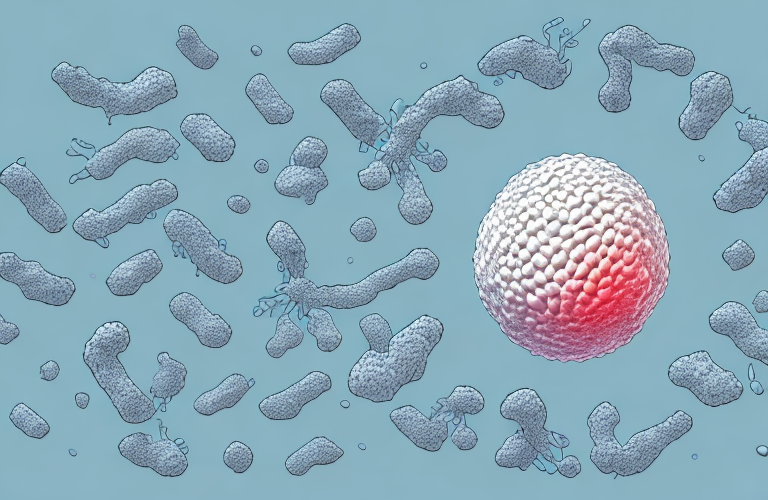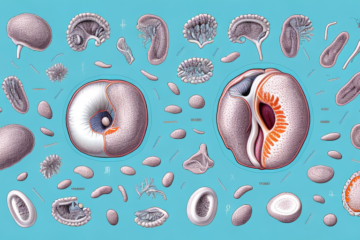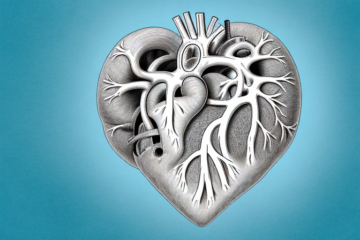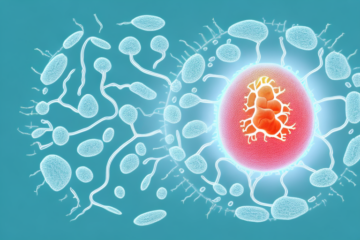Human Papillomavirus (HPV) is one of the most common sexually transmitted infections (STIs) that affects both men and women. It can cause a range of health issues, including genital warts and certain types of cancer. In this comprehensive guide, we will dive into everything you need to know about HPV, its causes, symptoms, treatments, and preventative measures.
Understanding HPV: A Comprehensive Guide
HPV is a viral infection that can be transmitted through vaginal, anal, or oral sex with someone who has the virus. It can also be passed on through skin-to-skin contact with the infected area. There are more than 100 different types of HPV, and each type has unique symptoms and effects. Some types cause warts while others can lead to cancer.
It is important to note that HPV is very common, and most people who are sexually active will contract the virus at some point in their lives. However, not all cases of HPV will lead to serious health problems. In fact, many people who contract the virus will never experience any symptoms or complications.
There are several ways to reduce your risk of contracting HPV, including practicing safe sex, getting vaccinated, and getting regular screenings for cervical cancer. If you do contract HPV, there are treatments available to manage symptoms and prevent the virus from causing further health problems.
What is HPV and How is it Contracted?
As mentioned earlier, HPV is a sexually transmitted viral infection that affects both men and women. The virus can enter the body through any of the exposed areas during sexual contact, including the anus, vagina, penis, and mouth. The infection can be passed on even if the infected individual doesn’t have visible warts or symptoms.
It is important to note that HPV is very common and most people who are sexually active will contract the virus at some point in their lives. In fact, according to the Centers for Disease Control and Prevention (CDC), approximately 79 million Americans are currently infected with HPV, and about 14 million people become newly infected each year. While most cases of HPV do not cause any health problems and go away on their own, some strains of the virus can lead to serious health issues such as genital warts and certain types of cancer.
Types of HPV: High-Risk and Low-Risk Strains
Not all strains of HPV are the same. Some strains are known as low-risk strains, which means they are less likely to cause cancer. However, high-risk strains of HPV can cause cancerous changes in the cells of the body, leading to cancer. The most common high-risk strains are HPV 16 and 18, which are responsible for most cases of cervical cancer.
It is important to note that HPV can also cause other types of cancer, such as anal, penile, and throat cancer. In fact, HPV is responsible for over 90% of anal and cervical cancers. It is recommended that both males and females receive the HPV vaccine to protect against these high-risk strains and reduce the risk of developing cancer.
HPV Symptoms in Men and Women
Often, HPV can present itself without any symptoms, which makes it challenging to diagnose and treat. However, some people may experience symptoms that can indicate a possible HPV infection. In women, the most common symptom is abnormal cervical cell changes, which can be detected through regular Pap smears. In men, visible warts on the genital area or rectum are the most prevalent symptom.
It is important to note that HPV can also cause other types of cancer in both men and women, including anal, penile, and throat cancer. Symptoms of these types of cancer may include persistent pain, difficulty swallowing, or changes in bowel or bladder habits. It is crucial to seek medical attention if you experience any of these symptoms, especially if you have a history of HPV infection.
Why Regular HPV Testing is Important
Regular testing and screening for HPV have become an essential preventive measure in the detection and treatment of the virus. Women are advised to get regular Pap smears to detect any cell changes in the cervix that could be indicative of the virus. Men and women can also get tested for HPV using a swab test or blood test if there are visible warts or other symptoms.
One of the main reasons why regular HPV testing is important is because HPV can lead to the development of cervical cancer. According to the World Health Organization, cervical cancer is the fourth most common cancer in women worldwide. However, with regular screening and early detection, cervical cancer can be prevented or treated successfully.
Another reason why regular HPV testing is important is because HPV can also cause other types of cancer, such as anal, penile, vaginal, and oropharyngeal cancer. By getting tested regularly, individuals can detect any abnormal cell changes early on and seek appropriate treatment to prevent the development of cancer.
Risk Factors for Developing HPV
Several factors can increase the risk of developing HPV, including engaging in unprotected sex, having multiple sexual partners, having a weakened immune system, and smoking. The age of the individual can also be a factor, as the virus is more likely to affect younger individuals who are sexually active.
In addition to these risk factors, it is important to note that certain strains of HPV are more likely to cause cancer than others. HPV types 16 and 18, for example, are responsible for the majority of cervical cancer cases. It is recommended that individuals receive the HPV vaccine, which can protect against these high-risk strains, as well as other common strains of the virus.
The Link Between HPV and Cervical Cancer
Cervical cancer is a severe health issue that can be caused by HPV. It is the most common type of cancer caused by the virus and can be prevented through regular screening and vaccination. The vaccine protects against the most common high-risk strains of HPV, which reduces the risk of developing cervical cancer.
It is important to note that HPV can also cause other types of cancer, such as anal, penile, and throat cancer. These cancers can also be prevented through vaccination and early detection. It is recommended that both males and females receive the HPV vaccine to protect against these types of cancer.
Treatment Options for HPV Infections
There is no cure for HPV, but there are several treatments for the visible symptoms such as warts. These treatments include topical creams, freezing, and surgical procedures. There are also natural home remedies that can be used to help alleviate the symptoms and reduce the number of warts in the infected area.
It is important to note that while these treatments can help manage the symptoms of HPV, they do not eliminate the virus itself. Therefore, it is still possible to transmit the virus to others even after treatment. It is recommended to practice safe sex and get regular check-ups with a healthcare provider to monitor any changes in the infection.
In addition to treating visible symptoms, there are also vaccines available to prevent certain strains of HPV. The HPV vaccine is recommended for both males and females, and is most effective when given before becoming sexually active. It is important to talk to a healthcare provider about the benefits and risks of the vaccine.
Preventing the Spread of HPV: Vaccines and Other Strategies
The most effective way to prevent HPV is by getting vaccinated. The vaccine is recommended for both men and women, and it can prevent the transmission of high-risk strains of the virus. Other preventative measures include practicing safe sex, using condoms, abstaining from sexual activity, and getting regular screening tests.
In addition to these preventative measures, it is important to note that HPV can also be spread through skin-to-skin contact in the genital area. This means that even with condom use, there is still a risk of transmission. It is also possible to contract HPV from a partner who may not show any visible symptoms. Therefore, it is important to have open and honest communication with sexual partners and to prioritize regular check-ups with a healthcare provider.
Debunking Common Myths About HPV
Despite the prevalence of HPV, there are still many misconceptions and myths surrounding the virus. Some of the most common myths include the belief that only women are affected by HPV, that HPV causes infertility, and that there is no cure for the virus. It is essential to educate oneself about the facts to understand the importance of prevention and treatment.
One of the lesser-known facts about HPV is that it can also affect men. While women are more likely to develop cervical cancer as a result of HPV, men can develop other types of cancer, such as anal and penile cancer. It is important for both men and women to get vaccinated against HPV to reduce their risk of developing these types of cancer.
Another common myth about HPV is that it only affects sexually active individuals. However, it is possible to contract HPV through non-sexual means, such as skin-to-skin contact. Additionally, many people who have HPV may not show any symptoms, making it difficult to know when the virus was contracted. This is why it is important to get regular screenings and to practice safe sex to reduce the risk of contracting or spreading HPV.
Living with HPV: Coping Strategies and Support Resources
Receiving an HPV diagnosis can be overwhelming, but it’s important to remember that it’s a common virus that can be managed. There are several coping strategies that individuals can use to manage the symptoms and maintain their overall health. It’s also essential to seek support from friends, family, and healthcare professionals, who can provide valuable resources and advice.
One coping strategy for individuals living with HPV is to maintain a healthy lifestyle. This includes eating a balanced diet, getting regular exercise, and avoiding smoking and excessive alcohol consumption. Additionally, practicing safe sex and using condoms can help reduce the risk of transmitting the virus to others. It’s also important to stay up-to-date with regular check-ups and screenings with a healthcare provider to monitor any changes in the virus and address any potential health concerns.
The Future of HPV Research and Treatment
HPV research continues to evolve to better understand the virus and develop new treatments and vaccines. The focus is on finding effective ways to prevent the virus’s transmission and reduce the number of cases of HPV-related cancers. It’s an exciting time in HPV research, with many promising developments on the horizon.
One promising area of HPV research is the development of therapeutic vaccines. These vaccines are designed to treat existing HPV infections and prevent the development of related cancers. Another area of focus is the use of immunotherapy to boost the body’s natural immune response to HPV. Researchers are also exploring the use of gene editing technology to target and eliminate HPV-infected cells. With continued advancements in HPV research, there is hope for a future where HPV-related cancers are a thing of the past.
When to See a Doctor for Possible HPV Symptoms
If you notice any visible symptoms in the genital area, it’s essential to seek medical advice immediately. It’s also important to get regular Pap smears and HPV screening tests to monitor any changes in cervical cells that could be indicative of the virus. Early detection and treatment can reduce the risk of serious health complications.
It’s important to note that not all HPV infections cause visible symptoms, and some may go away on their own without treatment. However, if you have a weakened immune system or a persistent infection, you may be at a higher risk for developing complications such as genital warts or cervical cancer.
In addition to seeking medical advice, there are steps you can take to reduce your risk of contracting HPV, such as practicing safe sex and getting vaccinated. It’s also important to have open and honest conversations with your sexual partners about your sexual health and any potential risks.
Conclusion
HPV is a common and often asymptomatic sexually transmitted virus that can cause serious health issues if left untreated. Regular screening, vaccination, and practicing safe sex are essential in preventing the spread of the virus and reducing the risk of complications. It’s important to stay informed about HPV and empower oneself with accurate information to maintain good sexual health.
One of the most effective ways to prevent the spread of HPV is through vaccination. The HPV vaccine is recommended for both males and females, and it can protect against the most common strains of the virus that cause cancer and genital warts. It’s important to get vaccinated before becoming sexually active to ensure maximum protection.
In addition to vaccination, practicing safe sex is also crucial in preventing the spread of HPV. Using condoms during sexual activity can reduce the risk of transmission, although it’s important to note that condoms do not provide complete protection against the virus. Regular screening for HPV and other sexually transmitted infections is also important, especially for those who are sexually active with multiple partners.










